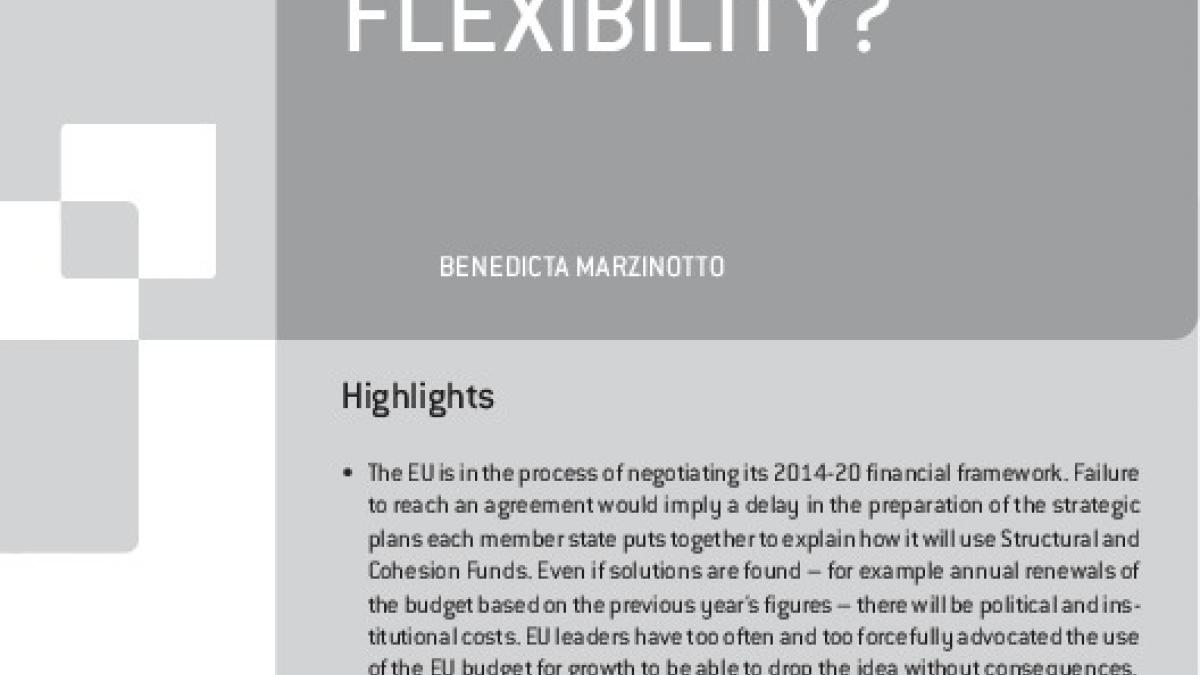The long-term EU budget: size or flexibility?
The EU is in the process of negotiating its 2014-20 financial framework. Failure to reach an agreement would imply a delay in the preparation of the s

• The overwhelming attention paid to the size of the budget is misplaced. EU leaders should instead aim to make the EU budget more flexible, safeguard it from future political power struggles, and reinforce assessment of the impact of EU funded growth policies.
• To improve flexibility a commitment device should be created that places the EU budget above continuous political disagreement. We suggest the creation of a European Growth Fund, on the basis of which the European Commission should be allowed to borrow on capital markets to anticipate pre-allocated EU expenditure, such as Structural and Cohesion Funds. Markets would thus be a factor in EU budget policymaking, with a potentially disciplining effect. Attaching conditionality to this type of disbursement appears legitimate, as capital delivered in this way is a form of assistance.